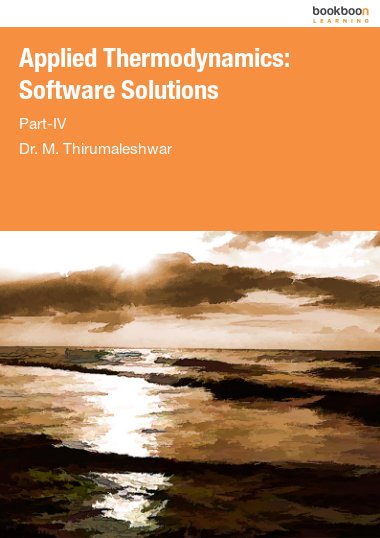This book deals with two chapters: Psychrometrics and Reactive systems.
Under Psychrometrics, which is the study of properties of air-water vapor mixtures, we, first give the definitions of various terms and also the thermodynamic equations to determine various psychrometric properties. Then, some psychrometric processes adopted in air-conditioning are explained with the help of Psychrometric chart. Two very good stand-alone calculators to quickly calculate various Psychrometric properties are explained.
Several very useful Functions are written in Mathcad to calculate various psychrometric properties. A summary of the Mathcad Functions written is also provided.
Under Reactive systems, basically, we deal with combustion. Combustion equations and their balancing by atoms of constituents is presented.
Stoichiometric Air-Fuel (AF) ratio, actual AF ratio, percent excess air, equivalence ratio etc are explained. Enthalpy of formation of compounds, enthalpy of combustion or enthalpy of reaction are explained.
Tables of enthalpies of formation and other tables for enthalpies of different species required for combustion calculations are presented.
Heat transfer during combustion and Adiabatic flame temperature are explained.
Also, many useful functions are written in Mathcad and EES and several problems are solved using Mathcad, EES and TEST to illustrate the problem solving techniques in both the chapters.

